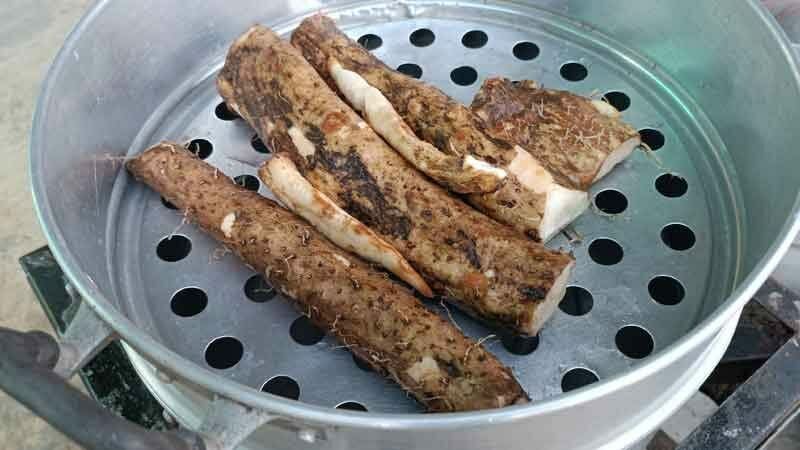Northeast Thailand: Local uncovers rare square yams, boosts income by 4,000 baht

A 74 year old local known as Uncle Aum from the Map Krat district of Nakhon Ratchasima province dug almost 3 metres deep to forage for a rare variety of wild yams, referred to as square yams by locals due to their distinct shape.
Uncle Aum used his free time after the end of the rice harvest season to supplement his household income and reduce living expenses.
The square yam, an unusual breed, resembles other yams, but it is identifiable by its square stalks. The yam’s tubers are long, hairy sections that are buried deep in the soil, usually found in the forest. Digging up this type of yam requires substantial effort as one needs to follow the deep vine underneath the soil for at least 1 metre.
For instance, the yam that Uncle Aum was currently digging required him to go almost 3 metres deep. This process took more than two hours, starting with digging a wide hole of at least 1 metre to serve as a resting point while going deeper.
Uncle Aum revealed that towards the end of the rainy season and the onset of winter, after the rice harvest, he uses his spare time to dig for square yams which he uses to prepare dishes. These yams can be used to make both savoury and sweet dishes. Savoury dishes are typically made into jungle curry or mixed with grilled fish, while sweet dishes are often made into coconut milk dessert, reported KhaoSod.
If a sizeable quantity of yams is found, they are sold at a rate of 40 baht per kilogramme. Despite the time and effort required, Uncle Aum perceives it as a form of exercise and productive utilisation of his free time. This year, he found nearly 100 kilogrammes of square yams, earning almost 4,000 baht. He has been doing this since he was a child.
The process of cooking with square yams can be slightly cumbersome due to the slimy sap between the skin and the flesh of the yam. It is recommended to steam the yam first to allow the sap to be released.
The taste of a square yam is similar to that of a sweet potato, but its texture is stickier. Even though they are still seen around, due to the laborious digging process, which requires a lot of strength and time, dishes with this ingredient have become increasingly rare.
Latest Thailand News
Follow The Thaiger on Google News:


























